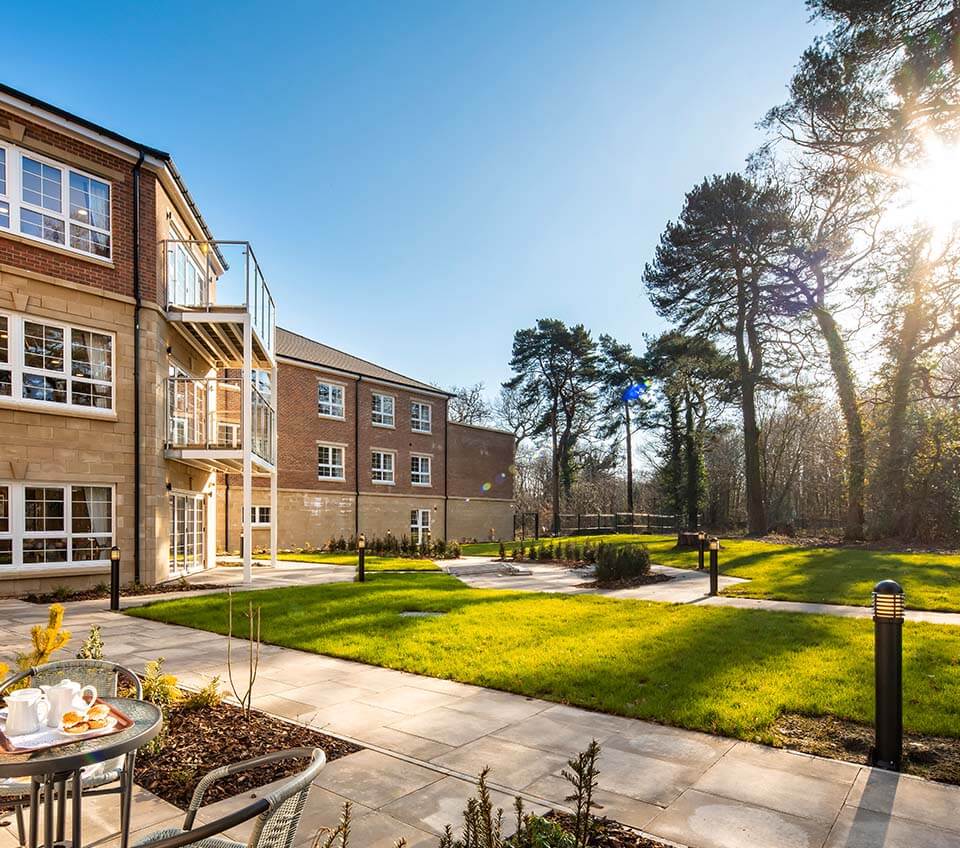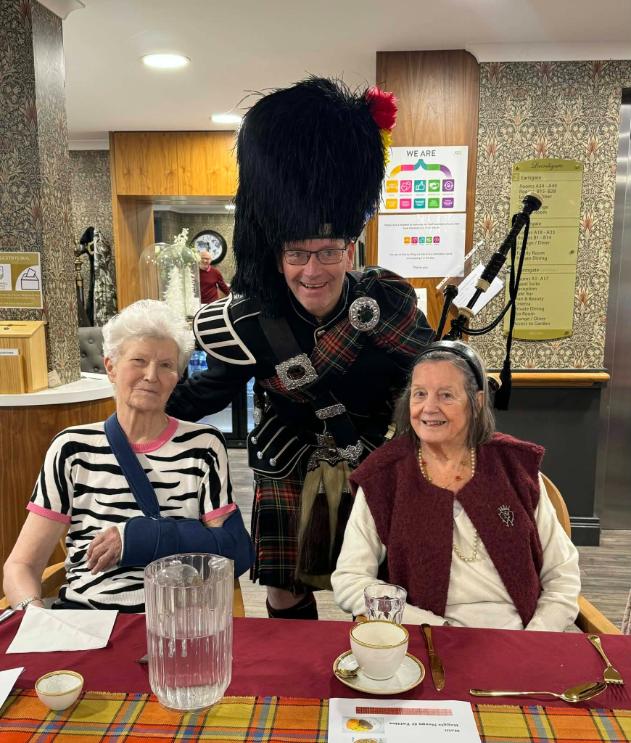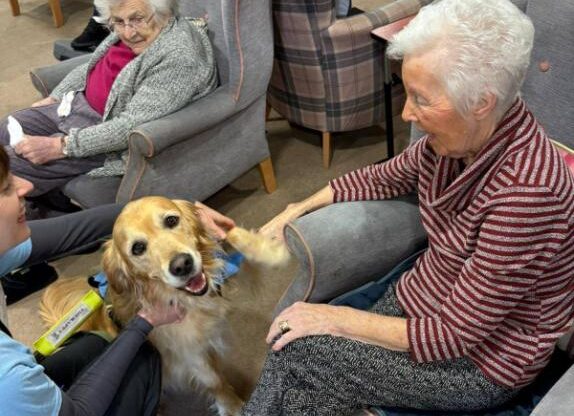How Various Care Needs are Supported in a Care Home

The types of care available at a care home will vary. Some care homes specialise solely in one care type such as residential homes or nursing homes, while others provide a wider variety of care services such as Residential Care, Dementia Care, Nursing Care, Respite Care and Palliative Care so care seekers should do their research before deciding on a suitable care home. In this blog, we will look at the different types of care available in care homes and how residents with different care needs are supported day to day.
Types of Care Supported in Care Homes
Each care home will provide a variety of services to support either one or a mix of the following care types:
- Residential Care
Residential Care is the best choice for those who require extra support with daily tasks such as bathing, clothing, personal hygiene, medicine and mobility. Residents can use a care home as if it were their own, going about their daily lives as usual while taking advantage of the numerous services and amenities available on site. - Nursing Care
Nursing Care is specialist care that is provided and supervised by Registered General Nurses and offered to residents who require continuous medical and personal attention. It is also a great solution for those who need intensive rehabilitative care, after suffering from an injury or illness. - Dementia (Alzheimer's, Vascular Dementia, Lewy body Dementia, Frontotemporal Dementia and Mixed Dementia)
Dementia is a disease that affects several mental functions, including speech and memory loss. Dementia care in a care home is provided at several levels, such as low-level or advanced. - Respite Care
Respite Care is a short-term care option that allows primary caregivers to take regular and unscheduled breaks. It is also the best option for those who need somewhere to recover following an operation or illness. - Physical Disability
Physical disability indicates any physical limitations or disabilities that inhibit the physical function of one or more limbs of a certain person. Those living with physical disabilities can be supported by an Occupational Therapist. - Sensory Impairment
Sensory impairment is the common term used to describe deafness, blindness, visual impairment, hearing impairment, and deafblindness. - Palliative Care
Palliative care is an interdisciplinary medical caregiving approach aimed at optimising the quality of life and mitigating suffering among people with serious, complex, and often terminal illnesses. - Huntington's Disease
Huntington's disease is a rare, inherited disease that causes the progressive breakdown (degeneration) of nerve cells in the brain. Huntington's disease has a wide impact on a person's functional abilities and usually results in movement, thinking (cognitive) and psychiatric disorders. - Motor Neurone Disease
Motor neurone disease is a rare condition that progressively damages parts of the nervous system. This leads to muscle weakness, often with visible wasting. - Multiple Sclerosis
Multiple sclerosis (MS) is a condition that can affect the brain and spinal cord, causing a wide range of potential symptoms, including problems with vision, arm or leg movement, sensation, or balance. - Parkinson's Disease
Parkinson's disease is a condition in which parts of the brain become progressively damaged over many years. - Stroke
A stroke is a serious life-threatening medical condition that happens when the blood supply to part of the brain is cut off.
How these Care Types are supported around Care Homes
Care homes are either purpose-built or designed to be fully equipped with niche equipment and facilities that skilled staff require to fully support older people. A care home is a safe and secure environment in which residents can receive professional support and comprehensive care and support 24 hours a day.
Safety
Care homes and any equipment within the home should be safe and well-maintained and staff made aware of ways to continually improve safety. Residents should always feel confident that they and their belongings are safe and secure. It is an integral part of a care home’s duty of care to work in a safe and competent manner without risking harm to those they care for. Care home activities often involve helping the mobility of older people, equipment, and stock along with personal care tasks, medication administration, cleaning, cooking, and many more. Key areas of safety that will be addressed in a care home include:
- Supporting the mobility of residents
- Slips, trips & falls
- Fire Safety
- Food Handling & Preparation
- Hazardous Substances
- Equipment Safety
- Clean and Hygienic Environment
Those living in a care home are likely to be older people or someone who has more vulnerable immune systems, which can make them more susceptible to commonly transmitted infections. Care homes prioritise appropriate measures to ensure residents, visitors and staff feel safe and comfortable in a clean and comfortable living and working environment.
Administering Medicine
Care homes will assess what medicines support a resident needs as part of their general assessment. They are then responsible for obtaining, storing, administering, and recording the outcome in the individual's care plan. Staff will manage a person's medicine, prompt a resident to take their medicine, help remove the packaging and ensure the medicine is taken correctly.
Nutritious, Homemade Meals
Food and nutrition are key areas of focus for a nursing home, both in the early days of welcoming a new resident and ongoing for maintaining health and well-being. As we age, our needs and requirements change, and a good, varied, balanced, and nutritious diet, along with keeping active can help to prevent potential health problems both physically and mentally, playing a vital role in ageing well.
Continuum of Care
A continuum of care is a system that provides a comprehensive range of health services that care can evolve with a resident over time while living in a care home. With the understanding that a resident’s health may be most vulnerable during gaps in care and support, the continuum of care exists to ensure those gaps are filled.
Skilled Staff
Qualifications play an important role in learning and development and there is a wide variety available within adult social care.
A care worker must have, at minimum, a Level 2 in Health and Social Care qualification. From here, carers can obtain qualifications in higher levels until they reach Level 5 which will give them the skills they need to work within senior management. Typically, the role of a care worker will involve some or all of the following responsibilities:
- Assisting with personal care such as showering and dressing
- Assisting people with eating and drinking
- Supporting people with their shopping
- Monitoring individual conditions; taking their temperature, pulse, respiration, and weight
- Potentially assisting with medication
Registered General Nurse’s (RGN) provide Nursing Care and Palliative Care. A RGN is a nurse who has graduated from a nursing programme and met the requirements outlined by the government-authorised licensing body to obtain a nursing license. The responsibilities of a RGN may differ depending on the environment they are working in; a RGN is able to work in the clinical setting on a hospital ward, at a nursing home or out in the community. Typically, the role of a RGN will involve some or all of the following responsibilities:
- Delivering personalised care plans
- Monitoring vital signs
- Carrying out assessments and blood tests
- Liaising with other team members including doctors and senior nurses
- Observing patients condition and recording information
- Administering medications
- Communicating with patients and their families
For niche care requirements such as Dementia Care, nurses will undertake specialist training. Nurses providing specialist care will become qualified in their specific field. Building on their qualifications, these professionals will continually increase their skills, knowledge and understanding in order to provide residents with expert care and support.
Relationship Centred Care
Relationship-centered care is a personalised and collaborative approach of forming and maintaining important relationships between residents, their loved ones and the professionals providing their care. Each of these connections allows for effective exchanges of information and is important for maintaining exemplary care, wellbeing support and a good quality of life.
Care Inspectorate
The Care Inspectorate have fundamental standards that care homes and nursing homes must adhere to. The Care Inspectorate look at the quality of care and support in Scottish care homes to ensure it meets high standards. They will identify areas that need improvement and provide support services to make positive changes.
Care Home Funding
Depending on a person's financial situation, they may be eligible for local authority funding. This is when the local council contributes towards the cost of a care home by conducting a financial assessment to see if an individual's savings, pensions or assets are under a certain threshold. The local authorities will provide each person with a personal budget, if the cost of care goes over their budget, a top-up fee may be required from the person needing care or a family member.
Outstanding Care At Bothwell
The wellbeing of our residents is at the heart of everything we offer, from the continuous person-centred care we provide to the outstanding facilities and enhanced activities programme we have to offer. We are proud of our exemplary standards of care, which we achieve by delivering around-the-clock care to each and every single one of our residents who are living in care. This allows us to fully comprehend our residents’ requirements, and in turn, provide them with the right level of assistance and high-quality care that is personalised to them.
Our person-centred approach to care at our care home, coupled with a range of first-class services and facilities allows us to provide an environment where each and every resident’s medical, emotional and social needs are satisfied; we aim to provide only the highest standard in everything we do.
Bothwell Castle is proud to be regulated by the Care Inspectorate.
Type of care available at Bothwell Castle Care Home:
- Residential Care
- Nursing Care
- Dementia Care, including Alzheimer's
- Respite Care
- End of Life / Palliative Care
- Physical Disability
- Sensory Impairment
Speak to us today
At Bothwell Castle Care Home, we have a team of friendly professionals who welcome any questions or queries you may have. Please fill out an Enquiry Form to receive a callback, and someone will be in touch. You can also reach us at 01698 622 299 or info@bothwellcastle.com. We look forward to speaking with you.





